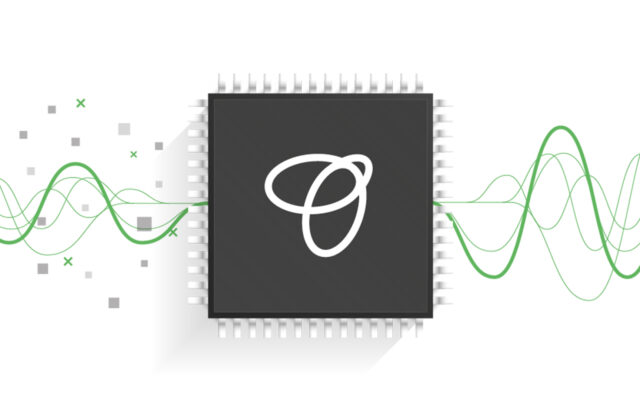Generative AI: A Game Changer for Data Centres and Semiconductor Innovations

In the rapidly evolving tech landscape, the emergence of generative AI has set a new precedent for computational demand, significantly impacting the data centre industry. As businesses and consumers increasingly integrate AI into daily operations and services, the need for robust, efficient, and scalable data centre infrastructure has never been more critical. Amidst this transformative era, Kandou stands at the forefront of semiconductor innovation, offering cutting-edge solutions like the Regli PCIe retimer, designed to meet the burgeoning needs of modern data centres.
The AI-Driven Demand for Data Centers
Generative AI, spearheaded by technologies such as OpenAI’s ChatGPT and Google’s Bard, has ignited a gold rush in the tech industry. Its adoption across various sectors is not just a testament to its potential but also highlights a significant increase in data centre demands. According to a report by Asian Tech Wire, the generative AI market is projected to reach an astounding US$126.5 billion by 2031, reflecting the critical role of data centres in supporting this technological boom.
The integration of AI into our daily lives necessitates a considerable expansion in computing power, leading to higher server density and, consequently, increased energy consumption and heat production. These challenges underscore the need for innovations that can enhance data centre efficiency and sustainability, making technologies like Kandou’s Regli PCIe retimer more relevant than ever.
Kandou’s Response to Data Center Evolution
Kandou is acutely aware of the challenges and opportunities presented by the generative AI revolution. The company’s flagship product, Regli, is engineered to address the critical needs of modern data centres, which are at the heart of AI and machine learning operations. Here are some of the ways Regli is set to revolutionize data centre performance:
- PCIe 5.0 Support and CXL 2.0 Compatibility: With up to 32 GT/s and support for x16/x8/x4 bidirectional lanes, Regli ensures that data centres can handle the increased data throughput required by AI applications, without compromising speed or reliability.
- Extended System Reach and Improved Signal Integrity: These features are crucial for maintaining performance across the extensive infrastructure of data centres, ensuring reliable data transmission even over long distances.
- Ultra-Low Latency: In the realm of AI, where milliseconds can make a difference, Regli’s ultra-low latency is a game-changer, enabling faster processing and response times.
- Simplified System Design: By reducing complexity, Regli facilitates easier and more cost-effective data centre expansions, crucial for keeping pace with the growing demands of generative AI.
- On-Chip Diagnostics and Secure Boot: These features ensure that data centres can operate securely and efficiently, with reduced downtime and enhanced protection against cyber threats.
Navigating the Future of Data Centers with Generative AI
The dual-edged sword of generative AI in data centres, as highlighted by Chris Street from JLL, emphasizes the importance of innovative solutions like Regli. As data centres grapple with increased power densities and the need for cooling technologies to manage the heat generated by AI computations, Regli’s advanced features offer a pathway to more sustainable and efficient operations.
Moreover, with the data centre industry in the Asia Pacific region poised for continued growth, Kandou’s technologies are well-positioned to play a pivotal role in this expansion. The company’s commitment to innovation aligns with the industry’s push towards sustainability and efficiency, addressing the significant energy use challenge while catering to the escalating demands of generative AI.
Looking to the future…
As generative AI continues to reshape the tech landscape, the collaboration between semiconductor innovators like Kandou and data centre operators will be crucial. By leveraging technologies such as the Regli PCIe retimer, the data centre industry can not only meet the current demands of generative AI but also anticipate and prepare for future advancements. In this era of rapid technological evolution, Kandou’s commitment to excellence and innovation positions it as a key player in enabling the next generation of data centres, ready to support the expanding universe of AI applications.
FAQ: Generative AI and Its Impact on Data Centres
Q1: How is generative AI impacting data centre demand?
A1: Generative AI is significantly increasing the demand for data centres by requiring more computing power for AI applications. This surge is due to the integration of AI into everyday life, driving the need for more robust and efficient data centre infrastructure.
Q2: What are the key features of Kandou’s Regli PCIe retimer?
A2: The Regli PCIe retimer supports PCIe 5.0 up to 32 GT/s, CXL 2.0, offers extended system reach, improved signal integrity, ultra-low latency, simplified system design, multiple control interfaces, flexible clock mode, secure boot, on-chip diagnostics, and operates with a power supply of 0.9V, 1.2V, 1.8V.
Q3: Why is ultra-low latency important in data centres, especially with generative AI?
A3: Ultra-low latency is crucial for generative AI applications as it enables faster processing and response times, which are essential for AI operations that require immediate data analysis and decision-making.
Q4: How can Regli PCIe retimer contribute to data centre sustainability and efficiency?
A4: By improving signal integrity, reducing latency, and simplifying system design, Regli helps in creating more energy-efficient and sustainable data centres capable of handling the high-density computing required by generative AI, without excessive power consumption or heat generation.
Q5: What are the main challenges faced by data centres with the rise of generative AI?
A5: The main challenges include handling increased power densities, managing the heat generated by high-density AI computations, ensuring energy efficiency and sustainability, and upgrading older facilities to accommodate new AI technologies.
Q6: How is the data centre industry in the Asia Pacific region responding to the demands of generative AI?
A6: The industry is witnessing continued growth and development, with investments in modern technologies like immersion or liquid cooling to address high-density issues. Additionally, there’s a focus on sustainability and efficiency in operations to support the expanding demands of generative AI.
Q7: What role does innovation play in meeting the demands of generative AI in data centres?
A7: Innovation is key to developing solutions that can efficiently manage the increased computational demands and energy consumption of generative AI. Technologies like Kandou’s Regli PCIe retimer are examples of how innovation can address these challenges by enhancing data centre performance and sustainability.


